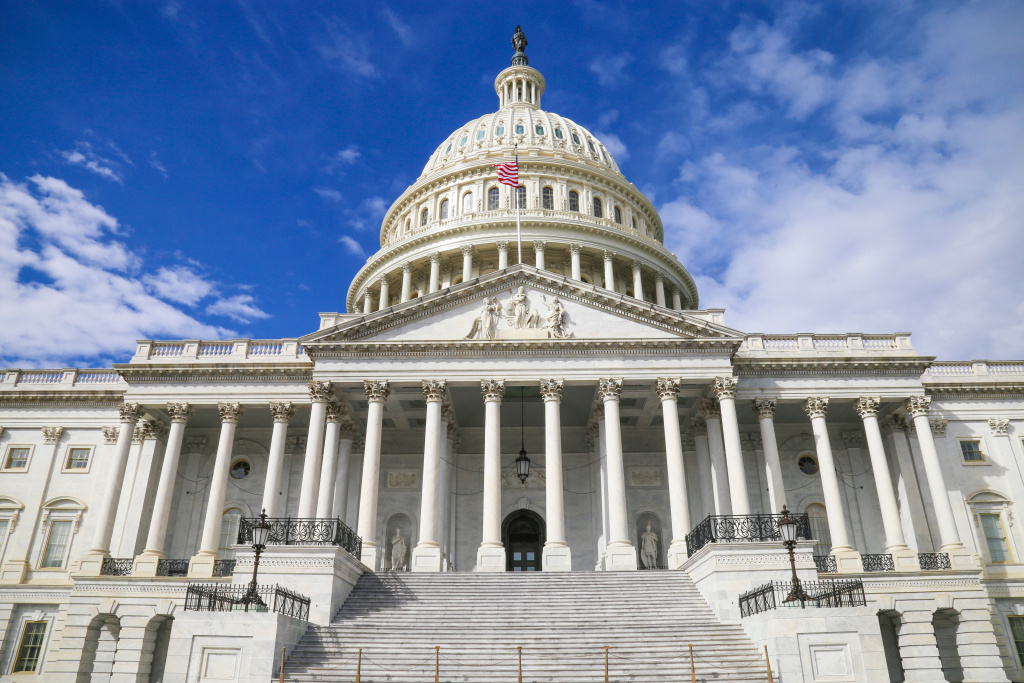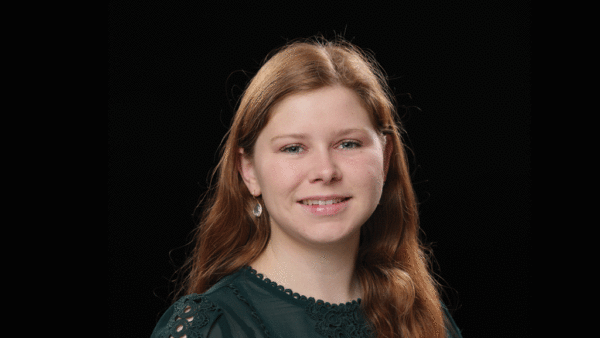The impact of evangelicals on the 2016 election has been the subject of countless articles and spirited television debates. Were evangelicals in 2016 still as politically conservative as they had been in past elections? What issues were central to their core political beliefs? Did younger evangelicals agree with their older counterparts on what those core political beliefs were? What factors pushed evangelicals to one candidate or another?
The Purpose for the Survey
Pollsters and the media, in general, have difficulty accurately interpreting the political responses of conservative Christians. The objective of the first BJU political survey was to create a baseline for evangelical voting and then track it over several presidential elections to see continuity and change in the voting behavior of this important part of the American electorate.
Looking ahead to the upcoming 2020 election cycle, in 2018 the BJU Division of History, Government and Social Sciences and the Division of Mathematical Sciences crafted and conducted a comprehensive political survey of BJU students, faculty, staff and alumni. They wanted to accomplish several things. First, the survey would give undergraduate students experience with an authentic research project. Students helped create the survey, run the statistics on the data and analyze the results. The project would also provide political insight into the BJU student body, faculty, staff and alumni.
We were pleasantly surprised by the 27.3% response rate (5,887 responses from 21,532 surveys issued) to this initial survey. The percentage of respondents from each of the groups surveyed was roughly equal, giving us a reliable spread of data that informed our conclusions about how age or income might have affected responses.
The Limitations of the Survey
One of the central questions we wanted to examine was, “Are conservative Christians connected with BJU also politically conservative?” A secondary question was, “To what extent do age, income, family background and other demographic factors affect political philosophy?” To answer these questions, we built a conservative political model by prioritizing issues that research showed were important to conservative Christians. How to define a “conservative” is highly debated, and the issues upon which conservative Christians place importance may shift from election to election. (link)
To get statistics that would provide useful insights, the survey offered the respondent two stark policy positions reflecting extreme conservative and liberal viewpoints. The respondents were directed to select the option that came closest to their view. This eliminated the “middle ground” where people feel most comfortable but washes out any distinction between different groups.
Overall, the survey respondents were more conservative on the central issues that are generally considered to define “a conservative” than the broader population of evangelicals. The conservative “score” of BJU respondents ranges from 0 to 1 (link), where 0 indicates a liberal response on each question and 1 indicates a conservative response on each question. Seventy-five percent of respondents generated a conservative score of at least 0.77, and fifty percent of respondents generated a score of at least 0.91, indicating an overwhelmingly conservative cohort.
The Results of the Survey
While there are scientific limitations to the survey, there is enough similarity between our data and other studies that we can draw conclusions about how our data set fits into a broader national picture. The underrepresented voice of evangelicals of color, however, is a weakness of this study with only 6% of respondents identifying as something other than non-Hispanic Caucasian.
Voting Records
There were no surprises in how respondents aligned politically. In terms of political party, 77% self-identified as Republicans, 14% as Independents, 5% as Libertarians and almost 2% as Democrats. Regarding political ideology, almost 85% identified themselves as conservative, 10% moderate, 3% Libertarian and a little over 1% as liberal. Political party affiliation and ideology influenced choices in the 2016 election with 29% selecting Ted Cruz in the primary, 21% Donald Trump and 14% Marco Rubio with the remainder of the candidates polling in the low single digits. There was wider separation in the general election with 70% voting for Trump, 6% for Evan McMullin and 3% for Hillary Clinton. While the study showed a significant number voting for Trump, it is not as high as the 81% that has been nationally reported. The BJU survey data confirms what others have speculated—areas with higher church membership and higher weekly attendance did not support Trump as strongly in the primary.
Factors in Selecting Candidates
When considering what respondents thought was the most important factor in selecting a candidate, the data raises more questions than it answers. Of those surveyed, 29% listed character as the most important factor, 30% positions on social/moral issues, 18% the candidate’s view of the role of government, followed by 10% leadership qualities and 8% trustworthiness. The remaining 5% indicated either position on foreign policy, religious affiliation or position on economic issues. This stands in contrast to a Christianity Today study which cites self-identified evangelicals as being most concerned with the economy, healthcare and immigration when selecting a candidate; character lagged far behind garnering only 7%.
Income Correlates to Positions
In the BJU 2018 study, as income increased, leadership ability, position on economic issues and position on the role of the federal government increased in importance, and character, position on social/moral issues, and trustworthiness decreased. Younger voters see positions on social/moral issues as most important. For the older generation, character is still a primary concern in selecting a candidate.
Character and Evangelicalism
The issue of character and evangelical voting patterns in the 2016 election has raised many questions, especially in light of historical responses to that issue. Evangelicals held Bill Clinton to a standard of character that they do not seem to apply to Donald Trump. Is there a shift in how evangelicals are defining “character”? Is character based on a moral standard or defined as someone who is faithful in keeping political promises? Is character a subjective term that denotes the values we presently deem as most important, suggesting it is not an absolute standard? Perhaps in 2016, more than in previous years, character-driven voters saw a lack of character in both major candidates and voted for the proverbial “lesser of two evils.” Those voters made a conscientious choice to vote within the two-party system and not for a third-party candidate, which itself has further implications.
Age and Income Affect Other Issues
As age and income were significant factors in selecting a candidate, they also were the major discriminators when it came to many other issues. Age and/or income differentiated respondents on the issues of abortion, same-sex marriage, gay lifestyles, immigration, social justice, climate change, welfare, cultural diversity and the legalization of marijuana. Those with higher incomes and those who fell within the 20–35 age bracket were less conservative in their responses than other groups within the BJU survey. However, when compared to national results on many of these issues, they were more conservative than the national averages. For example, in other surveys, opposition to same-sex marriage for people under 40 is at 50% compared to 75% among the same age group in the BJU survey. Yet, 75% of BJU respondents under 40 stands in contrast to 90% of all BJU respondents who opposed gay marriage in the BJU survey.
Issues like abortion and same-sex marriage are always among the social issues measured when analyzing evangelicals in the political arena. Conservative Christians are polled less on issues the media views as liberal causes disconnected from evangelicals, such as welfare and social justice, resulting in a lack of comparable data. The survey responses generated some conflicting results on these questions. For instance, respondents believed that social justice was less a responsibility of the church, while at the same time were more inclined to see the church playing a substantial role in helping the poor and less privileged.
BJU political science and mathematics students are grateful to the nearly 6,000 students, faculty, staff and alumni who responded to the 2018 survey. We expect that the 2019 version of the political survey, that has just concluded, will yield rich comparison data.
This survey project is a collaborative effort between BJU political science and mathematics students and faculty. Participants included:
- Nick Marks—senior, business administration major
- Tyler Smith—May 2019 graduate, business administration major
- Hannah Lovegrove—junior, physics major
- Caroline Hutton—senior, business administration major
- Zachary Heltsley—December 2018 graduate, communication major
- Glenn Faris—senior, history major
- Grace Gillespie—junior, social studies education major
- Linda Abrams—associate professor, Division of History, Government and Social Science
- Melissa Gardenghi—associate professor; chair, Division of Mathematical Sciences








